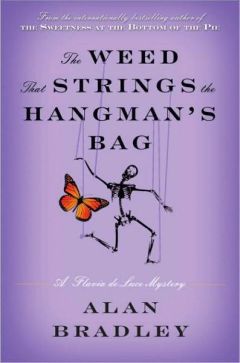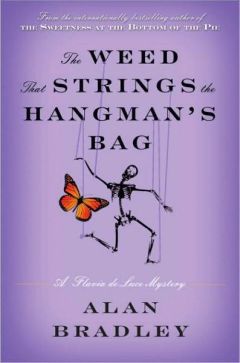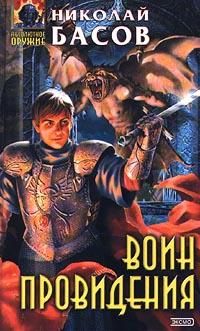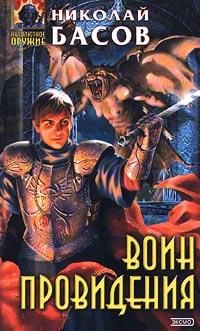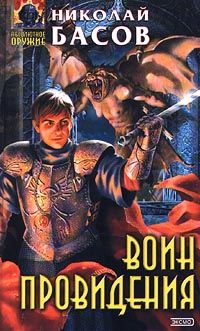Alan Bradley - A Red Herring Without Mustard: A Flavia de Luce Novel
In rather an odd way I found that I resented her easy slumber. I was simply itching to reel off for her, like a tour guide, some of the more fascinating bits of Buckshaw’s history. But for now, I should have to keep them to myself.
The Palings, as we called it, had been one of the haunts, in his latter days, of Nicodemus Flitch, a former tailor who, in the seventeenth century, had founded the Hobblers, a religious sect named for the peculiar shackled gait they adopted as they paced out their prayers. The Hobblers’ beliefs seemed to be based largely on such novel ideas as that heaven was handily located six miles above the earth’s surface, and that Nicodemus Flitch had been appointed personally by God as His mouthpiece and, as such, was licensed to curse souls to eternity, whenever he felt like it.
Daffy had told me that once, when Flitch was preaching at the Palings, he had called down God’s wrath upon the head of a heckler, who fell dead on the spot—and that if I didn’t fork over the tin of licorice allsorts that Aunt Felicity had sent me for my birthday, she would bring the same curse crashing down upon my head.
“And don’t think I can’t,” she had added ominously, tapping a forefinger on the book that she’d been reading. “The instructions are right here on this page.”
The heckler’s death was a coincidence, I had told her, and most likely due to a stroke or a heart attack. He would likely have died anyway, even if he’d decided to stay home in bed on that particular day.
“Don’t bet on it,” Daffy had grumbled.
In his later years Flitch, driven from London in disgrace, and steadily losing ground to the more exciting religious sects such as the Ranters, the Shakers, the Quakers, the Diggers, the Levellers, the Sliders, the Swadlers, the Tumblers, the Dunkers, the Tunkers, and yes, even the Incorrupticolians, had made his way to Bishop’s Lacey, where at this very bend in the river he had begun baptizing converts to his weird faith.
Mrs. Mullet, after glancing over each of her shoulders and dropping her voice to a furtive whisper, had once told me that Nicodemus Flitch’s strange brand of religion was still said to be practiced in the village, although nowadays strictly behind closed doors and drawn curtains.
“They dips their babies by the ’eels,” she said, wide-eyed. “Like Killies the ’Eel in the River Stynx, my friend Mrs. Waller says ’er Bert told ’er. Don’t you ’ave nothin’ to do with them ’Obblesr. They’ll ’ave your blood for sausages.”
I had grinned then and I smiled now as I recalled her words, but I shivered, too, as I thought of the Palings, and the shadows that swallowed its sunshine.
My last visit to the glade had been in spring when the clearing was carpeted with cowslips—“paigles,” Mrs. Mullet called them—and primroses.
Now the grove would be hidden by the tall elder bushes that grew along the river’s bank. It was too late in the season to see, and to inhale the delicious scent of, the elder flowers. Their white blossoms, like a horde of Japanese parasols, would have turned brown and vanished with the rains of June. Perhaps more cheerful was the thought that the purplish-black elderberries which took their place would soon be hanging in perfectly arranged clusters, like a picture gallery of dark bruises.
It was at the Palings, in the days of the early numbered Georges, that the river Efon had been diverted temporarily to form the ornamental lake and feed the fountains whose remnants dotted the lawns and terraces at Buckshaw. At the time of its construction, this marvel of subterranean hydraulic engineering had caused no end of hard feelings between my family and the local landowners, so that one of my ancestors, Lucius de Luce, had subsequently become known as “Leaking de Luce” to half the countryside. In his portrait, which still hangs in our picture gallery at Buckshaw, he seems rather bored, overlooking the northwest corner of his lake, with its folly, its fountains, and the—now long gone—Grecian temple. Lucius is resting the bony knuckles of one hand on a table, upon which are laid out a compass, a pocket watch, an egg, and a piece of gadgetry meant for surveyors, called a theodolite. In a wooden cage is a canary with its beak open. It is either singing or crying for help.
My cheerful musings were interrupted by a barking cough.
“Pull up,” the Gypsy said, snatching the reins from my hands. Her brief nap must have done her some good, I thought. In spite of the cough, there was now more color in her dusky cheeks and her eyes seemed to burn more brightly than ever.
With a clucking noise to Gry and a quick ease that showed her familiarity with the place, she steered the caravan off the narrow road, under a leafy overhang, and onto the little bridge. Moments later, we had come to a stop in the middle of the glade.
The Gypsy climbed heavily down from her seat and began unfastening Gry’s harness. As she saw to her old horse, I took the opportunity to glory in my surroundings.
Patches of poppies and nettles grew here and there, illuminated by the downward slanting bars of the afternoon sun. Never had the grass seemed so green.
Gry had noticed it, too, and was already grazing contentedly upon the long blades.
The caravan gave a sudden lurch, and there was a sound as though someone had stumbled.
I jumped down and raced round the other side.
It was evident at once that I had misread the Gypsy’s condition. She had crumbled to the ground, and was hanging on for dear life to the spokes of one of the tall wooden wheels. As I reached her side, she began to cough again, more horribly than ever.
“You’re exhausted,” I said. “You ought to be lying down.”
She mumbled something and closed her eyes.
In a flash I had climbed up onto the wagon’s shafts and opened the door.
But whatever I had been expecting, it wasn’t this.
Inside, the caravan was a fairy tale on wheels. Although I had no time for more than a quick glance round, I noticed an exquisite cast-iron stove in the Queen Anne style, and above it a rack of blue-willow chinaware. Hot water and tea, I thought—essentials in all emergencies. Lace curtains hung at the windows, to provide first-aid bandages if needed, and a pair of silver paraffin lamps with red glass chimneys swung gently from their mounts for steady light, a bit of heat, and a flame for the sterilizing of needles. My training as a Girl Guide, however brief, had not been entirely in vain. At the rear, a pair of carved wooden panels stood half-open, revealing a roomy bunk bed that occupied nearly the whole width of the caravan.
Back outside, I helped the Gypsy to her feet, throwing one of her arms across my shoulder.
“I’ve folded the steps down,” I told her. “I’ll help you to your bed.”
Somehow, I managed to shepherd her to the front of the caravan where, by pushing and pulling, and by placing her hands upon the required holds, I was at last able to get her settled. During most of these operations, she seemed scarcely aware of her surroundings, or of me. But once tucked safely into her bunk, she appeared to revive somewhat.
“I’m going for the doctor,” I said. Since I’d left Gladys parked against the back of the parish hall at the fête, I realized I’d have to hoof it later, from Buckshaw back into the village.
“No, don’t do that,” she said, taking a firm grip on my hand. “Make a nice cup of tea, and leave me be. A good sleep is all I need.”
She must have seen the skeptical look on my face.
“Fetch the medicine,” she said. “I’ll have just a taste. The spoon’s with the tea things.”
First things first, I thought, locating the utensil among a clutter of battered silverware, and pouring it full of the treacly looking cough syrup.
“Open up, little birdie,” I said with a grin. It was the formula Mrs. Mullet used to humor me into swallowing those detestable tonics and oils with which Father insisted his daughters be dosed. With her eyes fixed firmly on mine (was it my imagination, or did they warm a little?), the Gypsy opened her mouth dutifully and allowed me to insert the brimming spoon.
“Swallow, swallow, fly away,” I said, pronouncing the closing words of the ritual, and turning my attention to the charming little stove. I hated to admit my ignorance: I hadn’t the faintest idea how to light the thing. You might as well ask me to stoke up the boilers on the Queen Elizabeth.
“Not here,” the Gypsy said, spotting my hesitation. “Outside. Make a fire.”
At the bottom of the steps, I paused for a quick look round the grove.
Elder bushes, as I have said, were growing everywhere. I tugged at a couple of branches, trying to tear them loose, but it was not an easy task.
Too full of life, I thought; too springy. After something of a tug-of-war, and only by jumping vigorously on a couple of the lower branches, was I able to tear them free at last.
Five minutes later, at the center of the glade, I had gathered enough twigs and branches to have the makings of a decent campfire.
Hopefully, while muttering the Girl Guide’s Prayer (“Burn, blast you!”), I lit one of the matches I had found in the caravan’s locker. As the flame touched the twigs, it sizzled and went out. Another did the same.
As I am not noted for my patience, I let slip a mild curse.
If I were at home in my chemical laboratory, I thought, I would be doing as any civilized person does and using a Bunsen burner to boil water for tea: not messing about on my knees in a clearing with a bundle of stupid green twigs.
It was true that, before my rather abrupt departure from the Girl Guides, I had learned to start campfires, but I’d vowed that never again would I be caught dead trying to make a fire-bow from a stick and a shoestring, or rubbing two dry sticks together like a demented squirrel.
As noted, I had all the ingredients of a roaring fire—all, that is, except one.
Wherever there are paraffin lamps, I thought, paraffin can not be far away. I let down the hinged side panel of the caravan and there, to my delight, was a gallon of the stuff. I unscrewed the cap of the tin, splashed a bit of it onto the waiting firewood, and before you could say “Baden-Powell,” the teakettle was at a merry boil.
I was proud of myself. I really was.
“Flavia, the resourceful,” I was thinking. “Flavia, the all-round good girl.”
That sort of thing.
Up the steep steps of the caravan I climbed, tea in hand, balancing on my toes like a tightrope walker.
I handed the cup to the Gypsy and watched as she sipped at the steaming liquid.
“You were quick about it,” she said.
I shrugged humbly. No need to tell her about the paraffin.
“You found dry sticks in the locker?” she asked.
“No,” I said, “I …”
Her eyes grew wide with horror, and she held out the cup at arm’s length.
“Not the bushes! You didn’t cut the elder bushes?”
“Why, yes,” I said modestly. “It was no trouble at all, I—”
The cup flew from her hands with a clatter, and scalding tea went flying in all directions. She leapt from the bunk with startling speed and shrank herself back into the corner.
“Hilda Muir!” she cried, in an eerie and desolate wail that rose and fell like an air-raid siren. “Hilda Muir!” She was pointing to the door. I turned to look, but no one was there.
“Get away from me! Get out! Get out!” Her hand trembled like a dead leaf.
I stood there, dumbfounded. What had I done?
“Oh, God! Hilda Muir! We are all dead!” she groaned. “Now we are all dead!”
THREE
SEEN FROM THE REAR, at the edge of the ornamental lake, Buckshaw presented an aspect seldom seen by anyone other than family. Although the tall brick wall of the kitchen garden hid some parts of the house, there were two upper rooms, one at the end of each wing, that seemed to rise up above the landscape like twin towers in a fairy tale.
At the southwest corner was Harriet’s boudoir, an airless preserve that was kept precisely as it had been on that terrible day ten years ago when news of her tragic death had reached Buckshaw. In spite of the Italian lace that hung at its windows, the room inside was a curiously sanitized preserve as if, like the British Museum, it had a team of silent gray-clad scrubbers who came in the night to sweep away all signs of passing time, such as cobwebs or dust.
Although I thought it unlikely, my sisters believed that it was Father who was the keeper of Harriet’s shrine. Once, hiding on the stairs, I had overheard Feely telling Daffy, “He cleans in the night to atone for his sins.”
“Bloodstains and the like,” Daffy had whispered dramatically.
Far too agog for sleep, I had lain in bed for hours, open-eyed and wondering what she meant.
Now, at the southeast corner of the house, the upstairs windows of my chemical laboratory reflected the slow passage of the clouds as they drifted across the dark glass like fat sheep in a blue meadow, giving no hint to the outside world of the pleasure palace that lay within.
I looked up at the panes happily, hugging myself, visualizing the array of gleaming glassware that awaited my pleasure. The indulgent father of my great-uncle Tarquin de Luce had built the laboratory for his son during the reign of Queen Victoria. Uncle Tar had been sent down from Oxford amidst some sort of scandal that had never been quite fully explained—at least in my presence—and it was here at Buckshaw that he had begun his glorious, if cloistered, chemical career.
After Uncle Tar’s death, the laboratory was left to keep its secrets to itself: locked and forgotten by people who were more concerned with taxes and drainage than with cunningly shaped vessels of glass.
Until I came along, that is, and claimed it for my own.
I wrinkled my nose in pleasure at the memory.
As I approached the kitchen door, I felt proud of myself to have thought of using the least conspicuous entrance. With Daffy and Feely forever scheming and plotting against me, one could never be too careful. But the excitement of the fête and the moving of the Gypsy’s caravan to the Palings had caused me to miss lunch. Right now, even a slice of Mrs. Mullet’s stomach-churning cabbage cake would probably be bearable if taken with a glass of ice-cold milk to freeze the taste buds. By this late in the afternoon Mrs. M would have gone home for the day, and I would have the kitchen to myself.
I opened the door and stepped inside.
“Got you!” said a grating voice at my ear, and everything went dark as a sack was pulled over my head.
I struggled, but it did no good. My hands and arms were useless, as the mouth of the sack was tied tightly about my thighs.
Before I could scream, my assailants—of whom I was quite sure there were two, judging by the number of hands that were grabbing at my limbs—turned me head over heels. Now I was upside down, standing on my head, with someone grasping my ankles.
I was suffocating, fighting for breath, my lungs filled with the sharp earthy smell of the potatoes that had recently occupied the sack. I could feel the blood rushing to my head.
